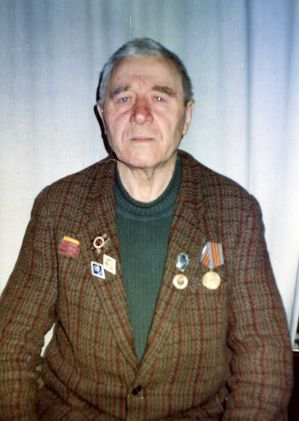
V.І.Kokhan: I, Kokhan Vasyl Ivanovych, was born in the Zakarpattia Oblast that at the time was called Pidkarpattiia Rus and was a part of Czechoslovakia. I was born into a poor family. My family always aspired that Ukraine would be reunited. I was born in the Village of Kosyno, Svaliava Region on November 18, 1926.
I went to school in our village, later I went to the high school 7 kilometers from us in the Village of Chynadiyovo (Mukachevo Region). I finished this school. But when in 1938 there was a large movement of OUN from Great Ukraine, here the Carpathian Sich was organized. I was an activist in it. I finished the master sergeant school of 1938 in the district of Black Tisza, not far from the Mountain of Syvulia. (At the age of 12?